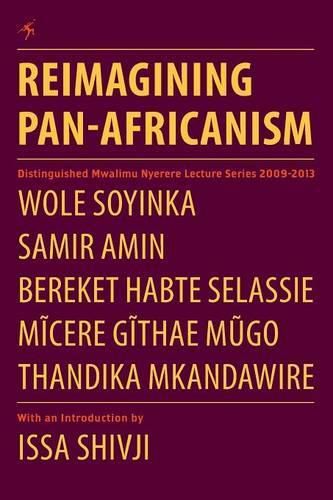Readings Newsletter
Become a Readings Member to make your shopping experience even easier.
Sign in or sign up for free!
You’re not far away from qualifying for FREE standard shipping within Australia
You’ve qualified for FREE standard shipping within Australia
The cart is loading…






This title is printed to order. This book may have been self-published. If so, we cannot guarantee the quality of the content. In the main most books will have gone through the editing process however some may not. We therefore suggest that you be aware of this before ordering this book. If in doubt check either the author or publisher’s details as we are unable to accept any returns unless they are faulty. Please contact us if you have any questions.
In the nineteen 60s and 70s, the University of Dar es salaam was recognised internationally as a great academic institution, and the site of anti-colonialist, anti-imperialist, socialist studies and activism. With the onslaught of neo-liberalism beginning with Structural Adjustment Programmes in Tanzania in the mid 80s, the university was one of its prime targets; subjected to numerous pressures designed to extinguish the flames of revolutionary scholarship and activism. The establishment in 2008 of the Mwalimu Nyerere Chair on Pan - Africanism with Professor Issa Shivji as its first Chairman, and the annual Distinguished Nyerere Lectures Series inaugurating annual intellectual festivals was, in Professor Shivji’s introduction to this volume of collected lectures, the resurrection of radical Pan-Africanism at the University of Dar es salaam. The impact of the festivals and the lectures went well beyond the university community, as substantial number of the participants at these lectures and debates were citizen intellectuals, not part of the university community. The calibre of the distinguished lecturers speaks for itself; there could be no better representation of progressive African intellectuals honouring the legacy of Mwalimu Nyerere, than Professors Wole Soyinka, Samir Amin, Bereket Habte Selassie, Micere Githae Mugo and Thandika Mkandawire whose lectures are published in this book.
$9.00 standard shipping within Australia
FREE standard shipping within Australia for orders over $100.00
Express & International shipping calculated at checkout
This title is printed to order. This book may have been self-published. If so, we cannot guarantee the quality of the content. In the main most books will have gone through the editing process however some may not. We therefore suggest that you be aware of this before ordering this book. If in doubt check either the author or publisher’s details as we are unable to accept any returns unless they are faulty. Please contact us if you have any questions.
In the nineteen 60s and 70s, the University of Dar es salaam was recognised internationally as a great academic institution, and the site of anti-colonialist, anti-imperialist, socialist studies and activism. With the onslaught of neo-liberalism beginning with Structural Adjustment Programmes in Tanzania in the mid 80s, the university was one of its prime targets; subjected to numerous pressures designed to extinguish the flames of revolutionary scholarship and activism. The establishment in 2008 of the Mwalimu Nyerere Chair on Pan - Africanism with Professor Issa Shivji as its first Chairman, and the annual Distinguished Nyerere Lectures Series inaugurating annual intellectual festivals was, in Professor Shivji’s introduction to this volume of collected lectures, the resurrection of radical Pan-Africanism at the University of Dar es salaam. The impact of the festivals and the lectures went well beyond the university community, as substantial number of the participants at these lectures and debates were citizen intellectuals, not part of the university community. The calibre of the distinguished lecturers speaks for itself; there could be no better representation of progressive African intellectuals honouring the legacy of Mwalimu Nyerere, than Professors Wole Soyinka, Samir Amin, Bereket Habte Selassie, Micere Githae Mugo and Thandika Mkandawire whose lectures are published in this book.